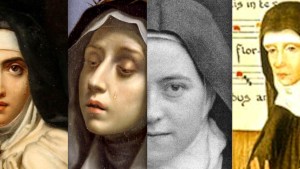Pope Francis has recognized the sanctity of a blind, disabled noblewoman who was rejected by her parents, St. Margaret of Castello. The pope has extended her veneration to the universal Church (her feast day is April 13). This is a recognition of Margaret’s sanctity through the process of equivalent (or equipollent) canonization.
Margaret’s story is heart wrenching. Her parents rejected her because of her disabilities, hiding her away for years, and then walling her into a cell built on the side of a chapel. Finally, they abandoned her in a town where she knew nobody.
As a beggar, Margaret cultivated a life of prayer and became renowned for her sanctity. Margaret (1287-1320) was a third order Dominican.
Equivalent canonization
Pope Francis has recognized a number of saints with equivalent canonization, including Peter Faber, Marie of the Incarnation, and Angela of Foligno.
Benedict XVI used the same recognition for St. Hildegard of Bingen, who is also recognized as a doctor of the Church.
Benedict XIV formalized this process in the 1700s. Through it, a pope invites the universal Church (as opposed to the local place where a saint might have been from, or a particular religious order he or she belonged to) to recognize the feast of the saint, with Mass and the Divine Office.
This recognizes that the Church’s judgment has been made on the person’s sanctity, even though the usual formula of canonization hasn’t been made.
The pro-life movement
Owing to her physical handicaps and the fact that Margaret’s parents thought she should not have been born, St. Margaret has been treasured as a patroness of unwanted children. For this reason she is a powerful intercessor for the pro-life movement.





